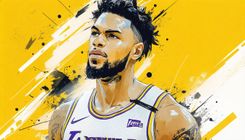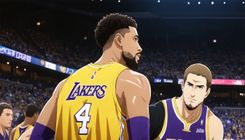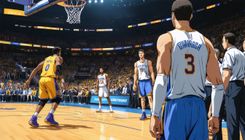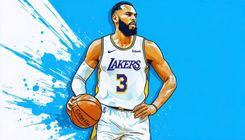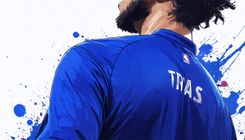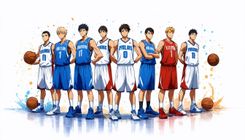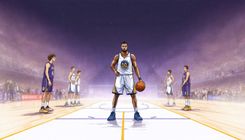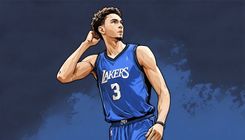Potential LeBron James Reunion with Miami Heat: An Analytical Perspective
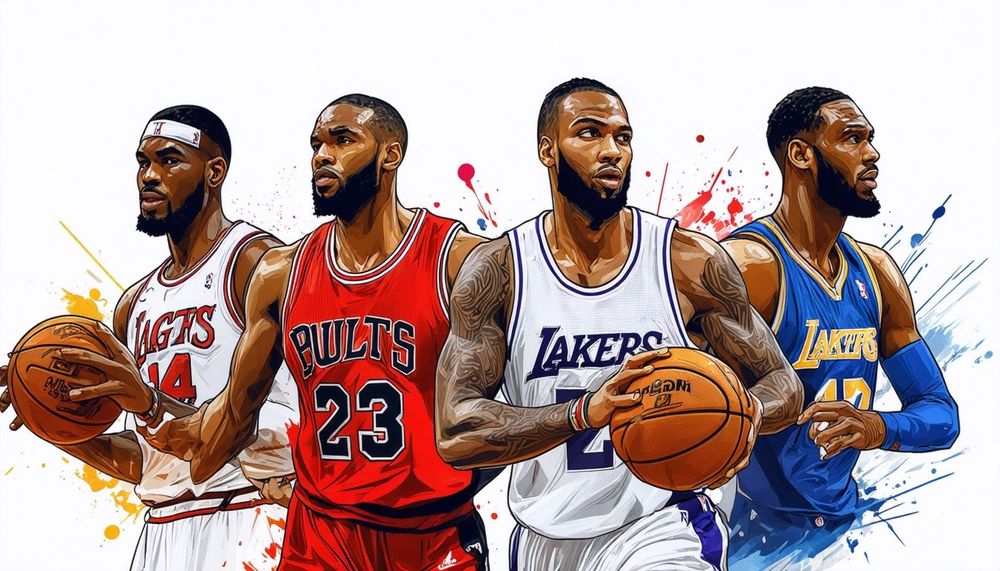
With LeBron James reportedly contemplating a departure from the Los Angeles Lakers, speculation regarding a possible return to the Miami Heat has surfaced. The most probable scenario for the summer of 2025 continues to align with James remaining in Los Angeles for the upcoming training camp. However, discussions surrounding a potential shift have emerged, prompting consideration of how such a move might materialize. The Miami Heat, a franchise integral to two of James’s four championship victories, stands out as one of the most logical landing spots for the player.
The Heat, consistently competitive in the Eastern Conference under head coach Erik Spoelstra, find themselves in need of a superstar to push them into championship contention. Their possession of trade assets and a strong motivation to bring both LeBron and his son, Bronny James, back to South Florida adds layers to this speculation. While the chances of this scenario coming to fruition may not appear high, it certainly warrants analysis regarding both the mechanics and rationale behind a potential reunion. A hypothetical trade could see Miami acquiring LeBron James, Bronny James, and Dalton Knecht, while the Los Angeles Lakers would receive Andrew Wiggins, Terry Rozier, Jaime Jaquez Jr., along with a 2029 first-round pick and a top-three protected pick swap for 2030.
Given Miami's proximity to a championship, the potential acquisition of James could be a pivotal move for the franchise. The Heat's current supporting cast is well-rounded, particularly if they can maximize the contributions of players like Kel'el Ware and first-round rookie Kasparas Jakučionis. With James in the mix, Miami's roster would be significantly strengthened, placing them among the elite teams in the Eastern Conference. While the Cleveland Cavaliers and New York Knicks might maintain their preference for existing rosters, no other team in the conference seems better positioned to match the strengths of a lineup featuring James, Tyler Herro, Bam Adebayo, and Norman Powell. Coupled with James's career averages of 27 points per game and Powell's recent scoring success of 21.8 points last season, Miami could see substantial improvements in their 21st-ranked offense.
While concerns about the Heat's ninth-ranked defense exist, the inclusion of James—who continues to be an effective contributor at 40 years old—could mitigate these worries. In the 2024-25 season, he ranked among a select group of players averaging 24 points and eight assists per game. James’s presence could alleviate pressure on Herro and Adebayo, allowing them to focus on their respective strengths: Herro as a scoring guard and Adebayo as a versatile center. The synergy between James and Spoelstra would likely enhance this team's performance, maximizing their collective output. Defensively, while the Heat may face challenges on the perimeter, they possess a solid asset in Adebayo, known for his ability to defend multiple positions, alongside Ware’s emerging potential as a rim protector. Spoelstra would be tasked with optimizing these elements, creating a formidable unit.
Although the trade speculation may seem ambitious considering the Heat’s recent record of 37 wins, the opportunity presented by a competitive Eastern Conference could be appealing to a front office known for ambitious pursuits. The long-term ramifications of acquiring James would be minimal; he has only one year remaining on his contract, allowing the Heat potential flexibility for future roster moves. Additionally, there are indications that James would be amenable to such a trade—an essential consideration due to the no-trade clause in his contract. Furthermore, James's wife, Savannah, has expressed a desire for a return to the East Coast, strengthening the familial ties that could influence this decision.
Incorporating Bronny James into this hypothetical scenario could provide the Heat with an exciting project for their developmental system, while also offsetting the potential loss of sharpshooter Duncan Robinson with Dalton Knecht. While the hypothetical nature of this trade might raise eyebrows, the potential benefits appear substantial compared to the necessary costs of two key assets. If the Lakers were ever compelled to consider trading away James—a scenario that would likely require his initiation—they should seek a package that offers immediate support for Luka Dončić alongside long-term assets to create a brighter future.
This suggested return from Miami would suit the Lakers' urgent needs. Although the trade might emphasize long-term benefits, Andrew Wiggins, who has been linked to the Lakers this offseason, would serve as a robust defensive option and scoring contributor. His significant role in the Golden State Warriors' success, particularly during their 2021-22 championship run, underscores his value. Alongside players like Austin Reaves, Deandre Ayton, and Rui Hachimura, the Lakers could feel reassured having dependable second and third scoring options within their rotation. The defensive capabilities of Wiggins, combined with the strategic adjustments from head coach Darvin Ham, could effectively address some of the Lakers' defensive vulnerabilities.
While some of the roster additions might appear oriented toward future development, Jaime Jaquez Jr. could be an integral player within this framework. The Southern California native, who garnered All-Rookie first-team honors in 2023-24, possesses the skill set to thrive alongside a dynamic playmaker like Dončić under offensive-minded coaching from JJ Redick. Terry Rozier might merely serve as filler in terms of salary, having struggled with performance last season and facing legal scrutiny. However, his previous productive seasons provide the Lakers with the reassurance that either Rozier or Gabe Vincent could stabilize backup point guard responsibilities. The centerpiece of this trade, however, lies in the valuable assets the Lakers would acquire, namely the future first-round pick and the protected pick swap, both of which could swing the trade market in their favor down the line.
The transaction presented would not negatively affect the Lakers' financial outlook, given Rozier's expiring contract and the impending conclusion of Wiggins's and Jaquez’s contracts by 2027. As a result, Los Angeles would remain well-positioned to pursue significant free-agent interests in 2027 without sacrificing the flexibility that defines their current strategy. Ultimately, while trading a player of LeBron James's caliber is a challenging prospect, this return package provides the Lakers with an opportunity to remain competitive in the immediate term while also enhancing their outlook for the future.
